 American views on disabilities are slowly evolving, and our society is finally beginning to acknowledge and accommodate the diverse needs of a diverse population. Because mainstream awareness about the Deaf community is on the rise, Deaf interpreting is a growing career field with increasing demand. There is a shortage of Deaf Interpreters, even in major cities!
American views on disabilities are slowly evolving, and our society is finally beginning to acknowledge and accommodate the diverse needs of a diverse population. Because mainstream awareness about the Deaf community is on the rise, Deaf interpreting is a growing career field with increasing demand. There is a shortage of Deaf Interpreters, even in major cities!
WHAT IS A DEAF INTERPRETER?
Deaf interpreters are in a unique position, with one foot in the Deaf world and one foot in the Interpreting world, which makes them highly qualified communication specialists. These individuals have completed an interpreter training program, and most have higher education degrees ranging from BA to Masters in related fields.
 Working as a team with a hearing ASL interpreter, Deaf Interpreters are used to facilitate effective communication in situations when linguistic and cultural differences can be challenging to overcome— for example, communicating with a Deaf person who has limited language skills, or a Deaf individual who has experienced severe trauma. Deaf interpreters are also used in situations when the inherent position of social power that a hearing interpreter occupies can interfere with the true message a Deaf person is trying to convey. This could occur in court rooms, hospitals, police stations, human welfare settings, and so on .
Working as a team with a hearing ASL interpreter, Deaf Interpreters are used to facilitate effective communication in situations when linguistic and cultural differences can be challenging to overcome— for example, communicating with a Deaf person who has limited language skills, or a Deaf individual who has experienced severe trauma. Deaf interpreters are also used in situations when the inherent position of social power that a hearing interpreter occupies can interfere with the true message a Deaf person is trying to convey. This could occur in court rooms, hospitals, police stations, human welfare settings, and so on .
Deaf Interpreters can be the best option for communicating with Deaf people who use a specific regional dialect, or foreign individuals for whom ASL is a second or third language. Deaf Interpreters are a great choice for communicating with Deaf children, individuals with learning, intellectual, or other physical disabilities, or those who are experiencing a mental health crisis.
While most ASL interpreters are specially trained hearing people with fluency in American Sign Language and a strong understanding of Deaf culture; Deaf interpreters are typically native sign language users who have the actual lived experience of deafness.
WHAT IS A CERTIFIED DEAF INTERPRETER?
 In 1998 the Registry of Interpreters for the Deaf (RID) established a certification program for Deaf Interpreters as part of the organization’s effort to create and uphold professional standards of quality. Those who acquire the RID credentials are known as Certified Deaf Interpreters (CDI).
In 1998 the Registry of Interpreters for the Deaf (RID) established a certification program for Deaf Interpreters as part of the organization’s effort to create and uphold professional standards of quality. Those who acquire the RID credentials are known as Certified Deaf Interpreters (CDI).
“Holders of this certification are deaf or hard of hearing and have demonstrated knowledge and understanding of interpreting, deafness, the Deaf community, and Deaf culture,” according to the RID website. “Holders have specialized training and/or experience in the use of gesture, mime, props, drawings and other tools to enhance communication….CDI has an extensive knowledge and understanding of deafness, the deaf community, and/or Deaf culture which combined with excellent communication skills, can bring added expertise into both routine and uniquely difficult interpreting situations.”
RID endorses the use of CDI to help ensure the following:
- Optimal understanding by all parties.
- Efficient use of time and resources.
- Clarification of linguistic and/or cultural confusion and misunderstanding(s).
- Arrival at a clear conclusion in the interpreting situation.
STEPS TOWARD BECOMING A CERTIFIED DEAF INTERPRETER
 “I always like to meet people and thought about being an interpreter,” explains pre-certified Deaf Interpreter Aleksandr Rozentsvit. “I like to challenge myself sometimes, and working how to make sure the client gets my message. Also I like to go to new places and being an interpreter ventures out to new places that I haven’t been before.”
“I always like to meet people and thought about being an interpreter,” explains pre-certified Deaf Interpreter Aleksandr Rozentsvit. “I like to challenge myself sometimes, and working how to make sure the client gets my message. Also I like to go to new places and being an interpreter ventures out to new places that I haven’t been before.”
Pursuing a career as a Deaf Interpreter can be a great option for people with hearing loss who have a passion for communication! It is a job that offers variety and constant opportunities for growth. But HOW TO get started?
1. Develop knowledge and skills in interpreting
When you are just getting started, it’s crucial to practice, practice, practice! Attending interpreter workshops and training events, such as the ones hosted by Gallaudet University, Deaf Interpreter Workshops, or other private programs, will help build your experience and understanding of the field.
Additional resources for training include the Deaf Interpreter Institute, which is “a learning, sharing, and networking site for Deaf Interpreters (DI), interpreters who work with Deaf Interpreters, DI educators and mentors, interpreting education program faculty and administrators, and people who use the services of DIs.” The Deaf Interpreter Institute has also created a National Consortium or Interpreter Education Centers (NCIEC) Deaf Interpreter Curriculum Manual, which is a thorough and comprehensive guide for those looking to take steps on the path toward this career.
Deaf individuals may enroll in an Interpreter Training Program (ITP) at a University. The Registry of Interpreters for the Deaf maintains information regarding interpreting education programs and they have a database or post-secondary programs that is searchable by State.
2. Check all CDI Knowledge eligibility requirements
 The next step is becoming RID Certified. Certification demonstrates a commitment to upholding the professional standards set forth by RID, and CDIs are often requested for sensitive settings, such as medical emergencies and legal cases.
The next step is becoming RID Certified. Certification demonstrates a commitment to upholding the professional standards set forth by RID, and CDIs are often requested for sensitive settings, such as medical emergencies and legal cases.
The CDI Knowledge Exam Eligibility Requirements are as follows:
a) Submitting 40 Hours/4.0 CEUs of Interpreter Training.
b) 8 hours/0.8 CEUs required on the NAD-RID Code of Professional Conduct – Recommended topics include: Ethical Decision Making and Ethics in Interpreting.
c) 8 hours/0.8 CEUs required on the Introduction to Interpreting – Recommended topics include: Interpreting 101
d) 8 hours/0.8 CEUs required on the Process of Interpretation – Recommended topics include: The Deaf Interpreter at Work, Deaf/Hearing Team Interpreting, Deaf/Deaf Team Interpreting, Interpreting for Deaf Blind consumers, Deaf Interpreting Processes, Deaf Interpreting Theory and Practice, Consecutive Interpreting, Simultaneous Interpreting, Sight/Test Translation, Visual Gestural Communication, and Platform Interpreting.
e) 16 hours/1.6 CEUs required on the elective(s) of your choice – Recommended topics include: ASL Linguistics, Mentorship Programs, and Interpreting Practicum, Additional training in any of the required content areas above.
f) Effective June 30, 2016, Deaf candidates must have a minimum of a bachelor’s degree.
3. Pay for CDI Knowledge exam
The Center for the Assessment of Sign Language Interpretation, LLC (CASLI) was established in June 2016 by RID to take over the administration, development, and maintenance of exams. Those pursuing certification will need to be in communication with CASLI once they are prepared to take the CDI Knowledge Exam. Applicants must also “submit an audiogram or letter from audiologist and proof of meeting the 40 hour training requirement to RID.”
APPLICATION
 RID staff will review training documentation within 10 business days. “After approval of the 40 hour training you will see the button to “Register for the CDI Knowledge Exam” in the yellow tile on your account.” Alternatively, applicants may send a hard-copy application with payment to CASLI.
RID staff will review training documentation within 10 business days. “After approval of the 40 hour training you will see the button to “Register for the CDI Knowledge Exam” in the yellow tile on your account.” Alternatively, applicants may send a hard-copy application with payment to CASLI.
CASLI recommends applying to take the exam at least five weeks in advance to ensure time for the application and registration process, including all required documentation.
The costs for the CDI Knowledge exam are $225 for RID Members, and $280 for non-members. The cost for an exam retake (within 5 years) is $165 for RID Members, or $190 for non-members.
4. Verify Access to Authorization To Test (ATT) Letter
Your ATT Letter serves as proof of eligibility to take the exam. Verification can be done via the CASLI website, access your ATT Letter by logging into your account and clicking on “Download ATT Letter” in the yellow tile titled “Certification Application Status.”
5. Schedule CDI Knowledge Exam with Test Site
The CDI Knowledge Exam is a written exam taken at a CASLI test site, which are located all across the country. Applicants must contact the CASLI test site of their choice to schedule the exam. A Test Administrator will confirm the appointment and provide further instructions on reaching the test location.
6. Take CDI Knowledge Exam
The CDI Knowledge Exam consists of 100 multiple choice questions and is administrated in both English and ASL. All answers are recorded on a Scantron sheet, and candidates have up to 3 hours to complete the exam. Per CASLI “The CDI Knowledge Exam tests for knowledge appropriate to an interpreter holding national certification and covering, professional roles and responsibilities, preparation for service delivery, provision of service, and post-service closure.” A score of 72 or better is required to pass the exam.
On the day of the exam, candidates must bring a hard copy of their ATT letter as proof of eligibility, as well as any applicable methods of identification.
The results of the CDI Knowledge Exam will be reported to candidates within 30 days of the test date. Those who fail the exam can take it again after a 6 month waiting period at a reduced price. Those who pass the CDI Knowledge Exam should contact the RID Certification Department regarding the requirements needed to meet the current CDI Bridge Plan for temporary CDI credentialing.
Per CASLI, “if you meet all the requirements of the CDI Bridge Plan, RID will award you temporary CDI crediential and enroll you in the Certification Maintenance Program. In addition, you will also be under the jurisdiction of the Ethical Practices System”
There is currently a moratorium on the CDI Performance Exam, While RID evaluates the Risk Analysis of the certification program there will be no Performance Exam offered. However, once the new Performance exam is launched, candidates who have passed the knowledge exam within 5 years and meet RID’s educational requirement may then take the CDI Performance Exam. The CDI Performance Exam is a videotape assessment.
DEAF INTERPRETING AS A CAREER
Deaf interpreters might find themselves working in a wide variety of scenarios, interacting with diverse people from all walks of life. Most commonly CDI services are requested in medical settings, mental health settings, or situations where a deaf individual is engaging with the criminal justice system.
“It’s like a roller coaster,” says Aleksandr Rozentsvit. “Some days are extremely busy while some days are so quiet.”
 Since Deaf Interpreters usually work as freelance contractors, they are afforded the flexibility of maintaining their own schedules. Those working in or near larger cities will often find more opportunities for work, but Deaf Interpreters who are willing to travel a bit will find that their services are needed all throughout the country. Those who have the skills, patience, and tenacity to get out there and network themselves have the possibility of finding success in a growing field.
Since Deaf Interpreters usually work as freelance contractors, they are afforded the flexibility of maintaining their own schedules. Those working in or near larger cities will often find more opportunities for work, but Deaf Interpreters who are willing to travel a bit will find that their services are needed all throughout the country. Those who have the skills, patience, and tenacity to get out there and network themselves have the possibility of finding success in a growing field.
Rozentsvit offers this bit of advice for those just starting out: “ROADBLOCKS! Plenty of these ahead when you start in the field of interpreting. Don’t get dismayed if people [are] not offering you enough tasks. Build your reputation as you go through your journey. You will face some challenges and explaining about the benefits of having a deaf interpreters. There are some interpreters/clients that doesn’t know about deaf interpreters and you will expect that during your tasks sometimes. The better your reputation is; people will start reaching out and your experience will grow.”
As society continues to redefine its relationship with disabilities, those who have been marginalized for so long are gaining more power to advocate for the rights, needs, and capabilities of their respective communities.
Deaf Interpreters bring valuable insight and critical perspectives to the interpreting field. These professionals enable a cycle of Deaf empowerment, where Deaf people are gainfully employed in support of other Deaf individuals. At the end of the day, nobody understands the communication needs of those who are Deaf better than other Deaf individuals!
SignNexus is thrilled to offer services from Deaf Interpreters all throughout the greater NYC Metropolitan region. Contact us today to Book an Interpreter!
SignNexus is also actively seeking Deaf Interpreters to join our interpreting team! We strive to provide Deaf interpreters as often as possible in appropriate settings. If you are a Deaf Interpreter interested in working with us, please submit a resume and cover letter to: info@signnexus.com
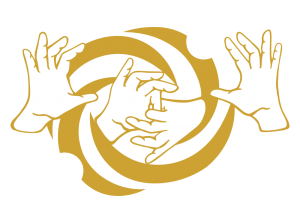












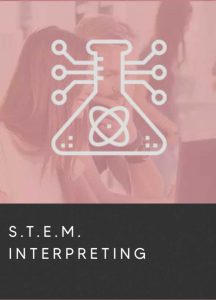
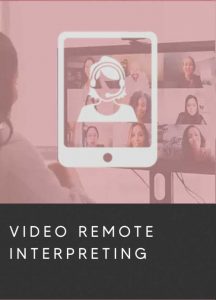
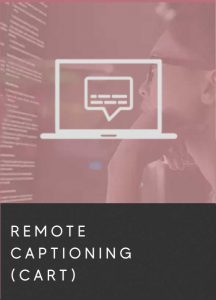

 American views on disabilities are slowly evolving, and our society is finally beginning to acknowledge and accommodate the diverse needs of a diverse population. Because mainstream awareness about the Deaf community is on the rise, Deaf interpreting is a growing career field with increasing demand. There is a shortage of Deaf Interpreters, even in major cities!
American views on disabilities are slowly evolving, and our society is finally beginning to acknowledge and accommodate the diverse needs of a diverse population. Because mainstream awareness about the Deaf community is on the rise, Deaf interpreting is a growing career field with increasing demand. There is a shortage of Deaf Interpreters, even in major cities! Working as a team with a hearing ASL interpreter, Deaf Interpreters are used to facilitate effective communication in situations when linguistic and cultural differences can be challenging to overcome— for example, communicating with a Deaf person who has limited language skills, or a Deaf individual who has experienced severe trauma. Deaf interpreters are also used in situations when the inherent position of social power that a hearing interpreter occupies can interfere with the true message a Deaf person is trying to convey. This could occur in court rooms, hospitals, police stations, human welfare settings, and
Working as a team with a hearing ASL interpreter, Deaf Interpreters are used to facilitate effective communication in situations when linguistic and cultural differences can be challenging to overcome— for example, communicating with a Deaf person who has limited language skills, or a Deaf individual who has experienced severe trauma. Deaf interpreters are also used in situations when the inherent position of social power that a hearing interpreter occupies can interfere with the true message a Deaf person is trying to convey. This could occur in court rooms, hospitals, police stations, human welfare settings, and  In 1998 the Registry of Interpreters for the Deaf (RID) established a certification program for Deaf Interpreters as part of the organization’s effort to create and uphold professional standards of quality. Those who acquire the RID credentials are known as Certified Deaf Interpreters (CDI).
In 1998 the Registry of Interpreters for the Deaf (RID) established a certification program for Deaf Interpreters as part of the organization’s effort to create and uphold professional standards of quality. Those who acquire the RID credentials are known as Certified Deaf Interpreters (CDI). “I always like to meet people and thought about being an interpreter,” explains pre-certified Deaf Interpreter Aleksandr Rozentsvit. “I like to challenge myself sometimes, and working how to make sure the client gets my message. Also I like to go to new places and being an interpreter ventures out to new places that I haven’t been before.”
“I always like to meet people and thought about being an interpreter,” explains pre-certified Deaf Interpreter Aleksandr Rozentsvit. “I like to challenge myself sometimes, and working how to make sure the client gets my message. Also I like to go to new places and being an interpreter ventures out to new places that I haven’t been before.” The next step is becoming RID Certified. Certification demonstrates a commitment to upholding the professional standards set forth by RID, and CDIs are often requested for sensitive settings, such as medical emergencies and legal cases.
The next step is becoming RID Certified. Certification demonstrates a commitment to upholding the professional standards set forth by RID, and CDIs are often requested for sensitive settings, such as medical emergencies and legal cases. RID staff will review training documentation within 10 business days. “After approval of the 40 hour training you will see the button to “Register for the CDI Knowledge Exam” in the yellow tile on your account.” Alternatively, applicants may send a hard-copy application with payment to CASLI.
RID staff will review training documentation within 10 business days. “After approval of the 40 hour training you will see the button to “Register for the CDI Knowledge Exam” in the yellow tile on your account.” Alternatively, applicants may send a hard-copy application with payment to CASLI. Since Deaf Interpreters usually work as freelance contractors, they are afforded the flexibility of maintaining their own schedules. Those working in or near larger cities will often find more opportunities for work, but Deaf Interpreters who are willing to travel a bit will find that their services are needed all throughout the country. Those who have the skills, patience, and tenacity to get out there and network themselves have the possibility of finding success in a growing field.
Since Deaf Interpreters usually work as freelance contractors, they are afforded the flexibility of maintaining their own schedules. Those working in or near larger cities will often find more opportunities for work, but Deaf Interpreters who are willing to travel a bit will find that their services are needed all throughout the country. Those who have the skills, patience, and tenacity to get out there and network themselves have the possibility of finding success in a growing field. One of the more interesting aspects of being an ASL interpreter is having the opportunity to work in a wide variety of settings with a diverse array of individuals. As an independent contractor or employee, ASL interpreters are assigned the responsibility to faithfully represent both deaf and hearing consumers in communication. But, beyond that, when contracting assignments for an agency, an interpreter’s work and behavior in the field is also reflective of that organization. How are you representing the agencies that offer you assignments?
One of the more interesting aspects of being an ASL interpreter is having the opportunity to work in a wide variety of settings with a diverse array of individuals. As an independent contractor or employee, ASL interpreters are assigned the responsibility to faithfully represent both deaf and hearing consumers in communication. But, beyond that, when contracting assignments for an agency, an interpreter’s work and behavior in the field is also reflective of that organization. How are you representing the agencies that offer you assignments? Of course this might go without saying, but customer service is our top priority in the interpreting profession. The consumers are the only reason we even have an job, and Its important that interpreters strive to ensure that everyone feels satisfied with the professional interaction.
Of course this might go without saying, but customer service is our top priority in the interpreting profession. The consumers are the only reason we even have an job, and Its important that interpreters strive to ensure that everyone feels satisfied with the professional interaction. You do not need to be a wealthy fashionista to dress appropriately for work! Consider adding a couple business items to your wardrobe that you wear only when you are on assignments. Clothing should always be clean and you should look put-together and appropriate for the setting. If you are unclear what this means, you can always ask the agency for more information.
You do not need to be a wealthy fashionista to dress appropriately for work! Consider adding a couple business items to your wardrobe that you wear only when you are on assignments. Clothing should always be clean and you should look put-together and appropriate for the setting. If you are unclear what this means, you can always ask the agency for more information. Take pride in the work you do and the excellence of the services you can offer. Preparing for an assignment in advance is one of the easiest and most straight forward ways to ensure you provide quality interpretation on site. Ask the agency to send any materials they have and don’t be afraid to ask questions if you have them. If you need to do research, do it. Fill the gaps in your own knowledge regarding the topic and setting so that you are ready to communicate any nuances between deaf and hearing parties. This is another quality that will make you stand out and can ultimately get you more work, as clients request your services again and again.
Take pride in the work you do and the excellence of the services you can offer. Preparing for an assignment in advance is one of the easiest and most straight forward ways to ensure you provide quality interpretation on site. Ask the agency to send any materials they have and don’t be afraid to ask questions if you have them. If you need to do research, do it. Fill the gaps in your own knowledge regarding the topic and setting so that you are ready to communicate any nuances between deaf and hearing parties. This is another quality that will make you stand out and can ultimately get you more work, as clients request your services again and again. If you encounter any ethical conflicts while on a job, or you have any questions regarding something that happened on assignment, communicate this to the agency! Direct communication and transparency will help create an excellent and productive relationship between yourself and the agencies you contract work through.
If you encounter any ethical conflicts while on a job, or you have any questions regarding something that happened on assignment, communicate this to the agency! Direct communication and transparency will help create an excellent and productive relationship between yourself and the agencies you contract work through. There are many students heading into the fall semester at colleges and universities across the country who remain uncertain about their career path. Planning for the future can be overwhelming, but take it from me: entering a profession that you love is a truly rewarding experience.
There are many students heading into the fall semester at colleges and universities across the country who remain uncertain about their career path. Planning for the future can be overwhelming, but take it from me: entering a profession that you love is a truly rewarding experience. Motivated sign language interpreters love the way language can be used to form meaningful connections. Strong linguistic skills are necessary for facilitating nuanced (and sometimes critical) conversations between deaf and hearing parties. Sign language interpreters need to take the time to understand each side, their motives, and their communication style so that they can ensure the messages are being faithfully conveyed. People who wish to be ASL interpreters are those who enjoy meeting people from all walks of life and hearing about their experiences.
Motivated sign language interpreters love the way language can be used to form meaningful connections. Strong linguistic skills are necessary for facilitating nuanced (and sometimes critical) conversations between deaf and hearing parties. Sign language interpreters need to take the time to understand each side, their motives, and their communication style so that they can ensure the messages are being faithfully conveyed. People who wish to be ASL interpreters are those who enjoy meeting people from all walks of life and hearing about their experiences. Not everyone is fluent in ASL when they decide to become an interpreter, and that’s ok. For those individuals, the first step to becoming an interpreter is working on sign language skills in a formal environment— a
Not everyone is fluent in ASL when they decide to become an interpreter, and that’s ok. For those individuals, the first step to becoming an interpreter is working on sign language skills in a formal environment— a 
 Every state has a different system as far as licensure and certification requirements, so be sure to check with your state commission for the Deaf and Hard of Hearing. After your ITP has been completed, the next step is the National Interpreter Certification (NIC). The NIC is a two part examination given by the
Every state has a different system as far as licensure and certification requirements, so be sure to check with your state commission for the Deaf and Hard of Hearing. After your ITP has been completed, the next step is the National Interpreter Certification (NIC). The NIC is a two part examination given by the 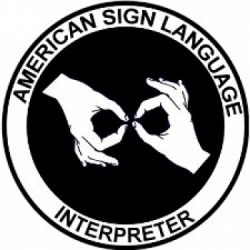 In this field, education does not end with a degree! The best ASL interpreters are those who actively engage in
In this field, education does not end with a degree! The best ASL interpreters are those who actively engage in 





